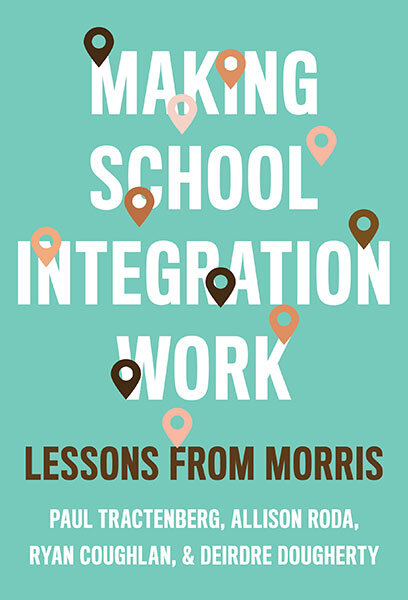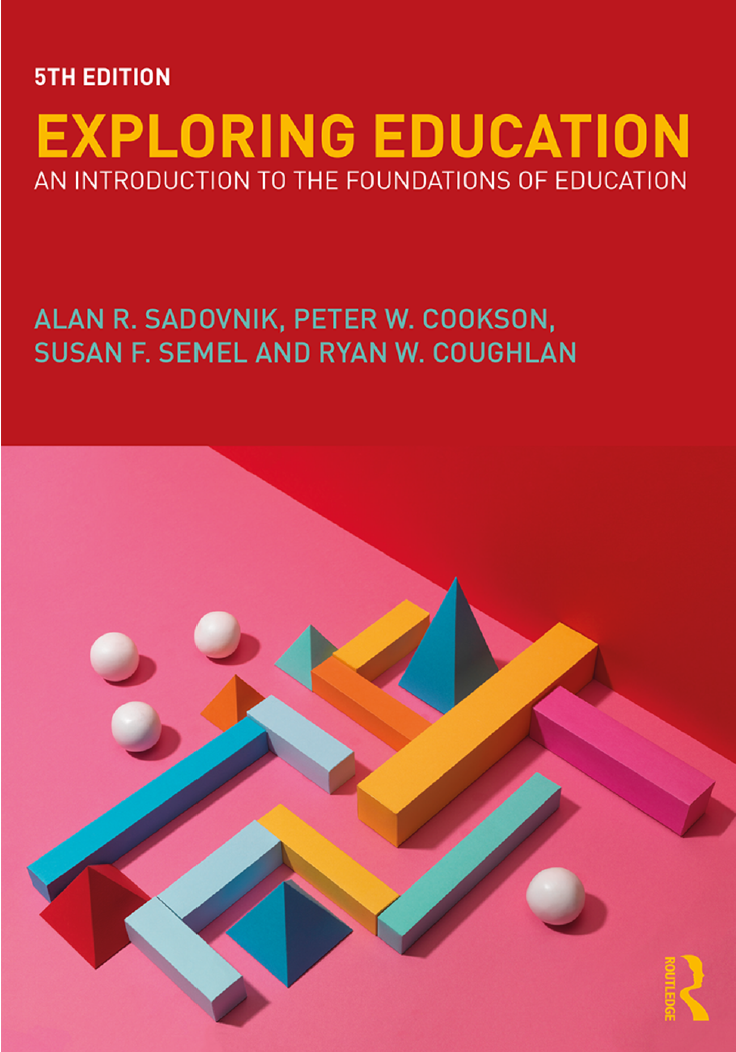Books
Making School Integration Work: Lessons from Morris
Many American schools continue to struggle with segregation. This important book tells the story of how two school districts—one a predominantly White and wealthy suburban community and the other a more diverse and urbanized community—were merged into a single district to work toward a solution for school segregation. The authors focus on the Morris School District in New Jersey as an exemplar to demonstrate what is possible and how it can be accomplished. They document what makes a district like Morris successful and include lessons learned in each chapter. Along with analyzing the legal and educational policy implications of the nearly 50-year history of the merged district, the authors take a mixed methods approach to deepen our knowledge of effective leadership, community–school relations, and classroom practices in the context of a community committed to genuine integration.
Book Features:
Offers a deep analysis of one of the few districts that is making progress toward true integration.
Examines a local story that has wide applicability to those interested in social justice, enlightened leadership, and equitable educational opportunities for all students.
Employs qualitative and quantitative research along with GIS mapping to study the legal, educational, political, historical, and sociological dimensions of the case study.
Provides a series of lessons learned from the Morris School District that will assist those engaged in building equitable school systems.
Exploring Education: An Introduction to the Foundations of Education
This much-anticipated fifth edition of Exploring Education offers an alternative to traditional foundations texts by combining a point-of-view analysis with primary source readings. Pre- and in-service teachers will find a solid introduction to the foundations disciplines -- history, philosophy, politics, and sociology of education -- and their application to educational issues, including school organization and teaching, curriculum and pedagogic practices, education and inequality, and school reform and improvement. This edition features substantive updates, including additions to the discussion of neo-liberal educational policy, recent debates about teacher diversity, updated data and research, and new selections of historical and contemporary readings.
At a time when foundations of education are marginalized in many teacher education programs and teacher education reform pushes scripted approaches to curriculum and instruction, Exploring Education helps teachers to think critically about the "what" and "why" behind the most pressing issues in contemporary education.
Leaders in the Sociology of Education: Intellectual Self-Portraits
Leaders in the Sociology of Education: Intellectual Self-Portraits contains eighteen self-portraits written by some of the leading sociologists of education in the world. Representing the United States, the United Kingdom, and Hong Kong, the authors discuss a variety of factors that have affected their lifetime of scholarship, including their childhoods, their education and mentors, the state of the field during their “coming of age,” the institutions where they have worked, the major sociologists during their lifetimes, the political and economic conditions during their lifetimes, and the social and political movements during their lifetimes. These autobiographical essays reveal a great deal not only about their work and their influences, but also about themselves. Taken as a whole, the book provides sociology of knowledge about the creation of sociology of education research since the 1960s. It reveals a number of important themes central to all of the authors’ work, including educational inequality; the influence of the classical sociological theorists, Karl Marx, Max Weber and Emile Durkheim; and the influence of more recent classical sociologists of education, Basil Bernstein, Pierre Bourdieu and James Coleman. The authors’ research represents a variety of theoretical and methodological orientations including functionalism, conflict and critical theory, interactionist theory and feminist theory, as well as quantitative, qualitative and mixed-methods research. Finally, the editors discuss a number of lessons to be learned from the lives and works of these sociologists of education.
"Schools of Tomorrow," Schools of Today: Progressive Education in the 21st Century
The second edition of "Schools of Tomorrow," Schools of Today: Progressive Education in the 21st Century documents a new collection of child-centered progressive schools founded in the first half of the twentieth century and provides histories of some contemporary examples of progressive practices. Part I discusses six progressive schools founded in the first part of the twentieth century (City and Country; Dalton; the Weekday School at Riverside Church; The Laboratory School at the Institute of Child Study; Alabama State Teachers College Laboratory High School; and Highlander), tracing them from their beginnings. Part II examines four more contemporary schools (Central Park East 1; Central Park East Secondary; Learning Community Charter School; and KIPP TEAM Academy), showing how progressive practices gained momentum from the 1960s onward. As a volume in the History of Schools and Schooling series, this book seeks to look to the past for what it can teach us today.
Sociology of Education: A Critical Reader
This comprehensive and bestselling reader examines the most pressing topics in sociology and education while exposing students to examples of sociological research in schools. Drawing from classic and contemporary scholarship, noted sociologist Alan R. Sadovnik with Ryan W. Coughlan have chosen readings that examine current issues and reflect diverse theoretical approaches to studying the effects of schooling and society. The third edition provides students with nine new readings from some of the best theorists and researchers in education including Sean F. Reardon, Ann Owens, Prudence L. Carter, and Pedro A. Noguera. Through full, rather than excerpted primary source readings, students have the opportunity to read sociological research as it is written and engage in critical analyses of readings in their entirety. This edition features a greater focus on issues of equality and accessibility in schooling for minority students and those with learning disabilities, while an all-new Part IV offers a selection of articles on the shifting social and political factors which have influenced the development of education policy and reform within the last six years. Including comprehensive section introductions, questions for reflection and discussion, and suggested readings, Sociology of Education will stimulate student thinking about the important roles that schools play in contemporary society and their ability to solve fundamental social, economic, and political problems.




